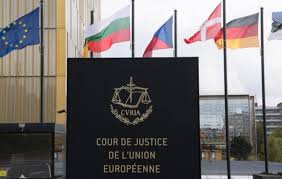On Wednesday, TikTok and Meta Platforms won a legal challenge to how EU authorities determined a supervisory fee imposed on them under historic digital regulations.
However, they will not get their money back until officials reformulate the levy.
After being saddled with a supervisory fee equal to 0.05% of their yearly global net income to cover the EU executive’s cost of keeping an eye on their compliance with the Digital Services Act, Meta and ByteDance’s TikTok filed a lawsuit against the European Commission.
Each company’s average monthly active user count and whether or not it made a profit in the previous fiscal year determine how much the annual charge is.
The two businesses claimed that the costs were excessive because of flaws in the process.
The General Court in Luxembourg ruled in favor of Meta and TikTok, granting EU regulators a year to correct their practices through a new law.
“That methodology… should have been adopted not in the context of implementing decisions but in a delegated act, in accordance with the rules laid down in the DSA,” the judges stated.
They stated that unless they develop a new legal foundation for the process used to calculate the fee’s amount, regulators are not required to reimburse the 2023 payments that the companies have already paid.
According to the Commission, the court has affirmed that its fee methodology is valid and that neither the fee’s level nor its basis is problematic.
“The Court’s decision necessitates a merely formal procedure adjustment. A Commission representative stated, “We now have 12 months to adopt a delegated act to formalize the fee calculation and adopt new implementing decisions.”
TikTok applauded the court’s ruling. A representative for TikTok stated, “We’ll closely follow the development of the delegated act.”
Meta was pleased with the verdict.
“At the moment, businesses that report a loss are exempt from paying, even if they have a sizable user base or pose a bigger regulatory burden, so others bear a disproportionately higher percentage of the overall cost. We anticipate that the methodology’s shortcomings will be fixed,” a Meta representative stated.
The DSA, which went into effect in November 2022, mandates that extremely big online companies take more action to address harmful and unlawful information on their websites or face fines of up to 6% of their yearly worldwide revenue.
Amazon, Apple, Booking.com, Google, Microsoft, Elon Musk’s X social media platform, Snapchat, and Pinterest are among the other companies that must pay the supervisory fee.
The cases are T-58/24, TikTok Technology v. Commission, and T-55/24, Meta Platforms Ireland v. Commission.

















